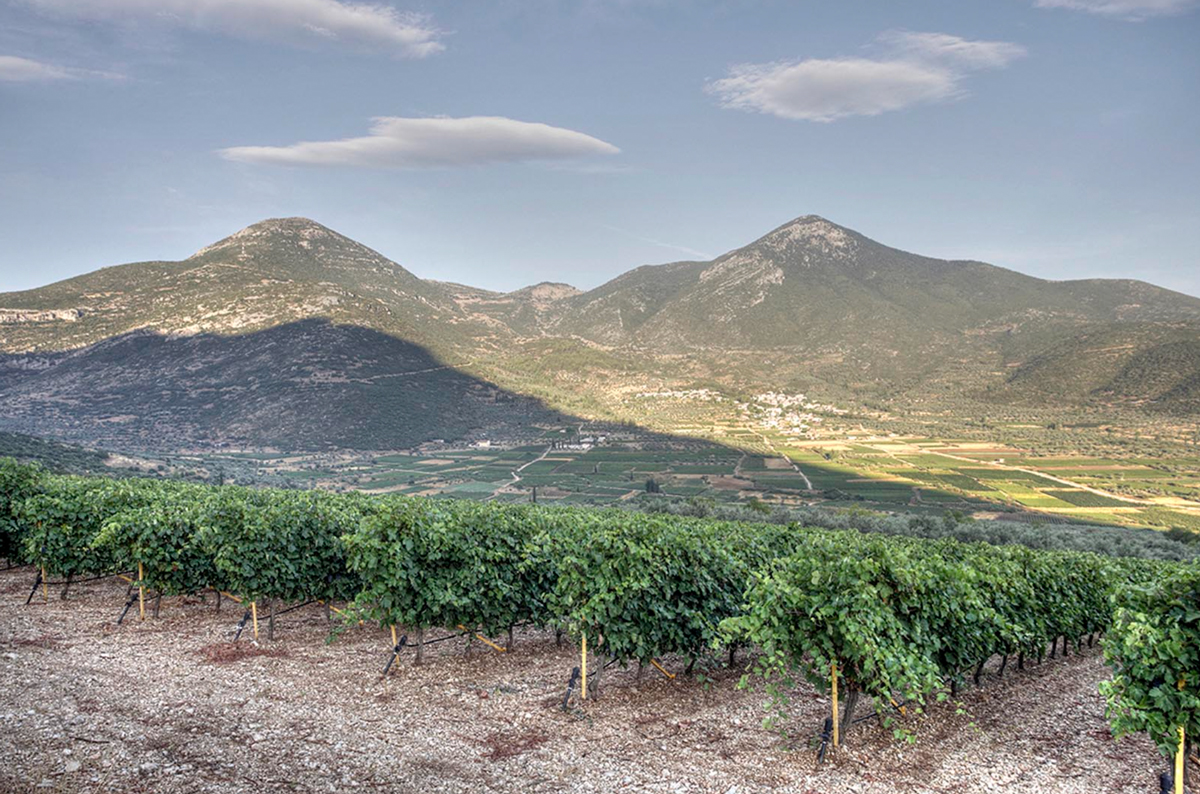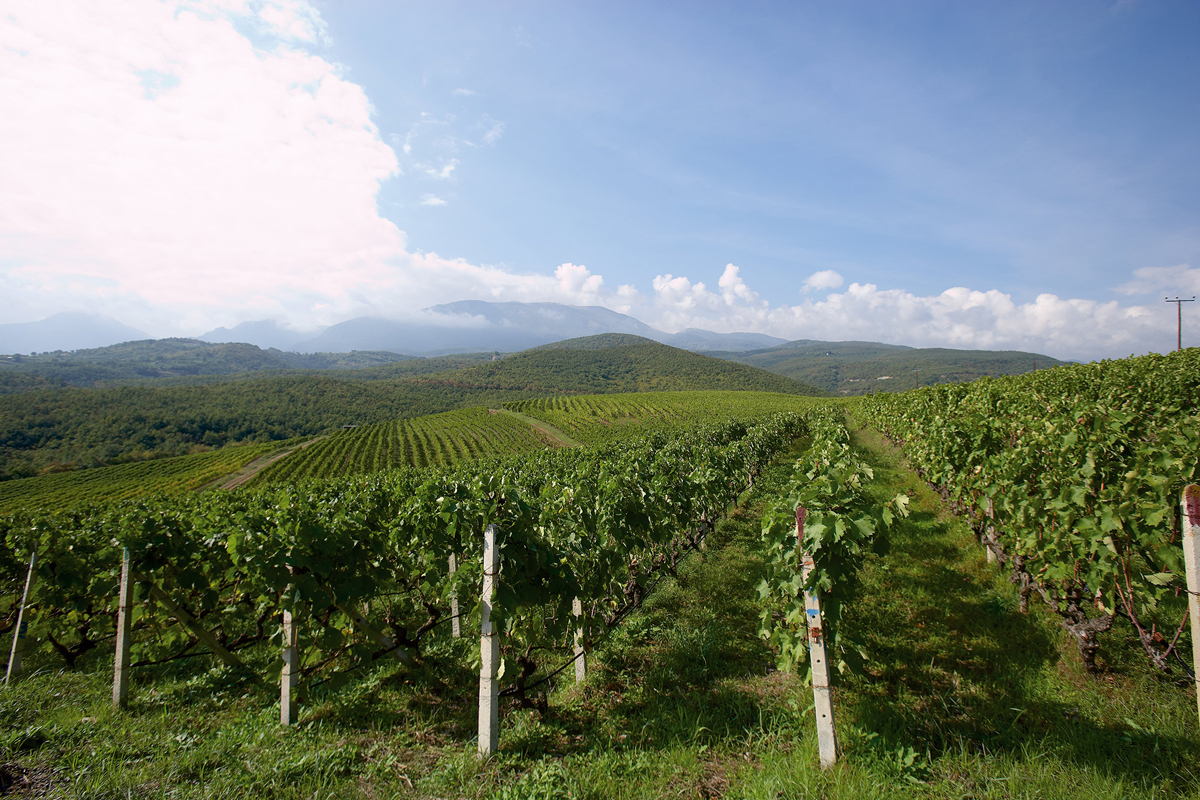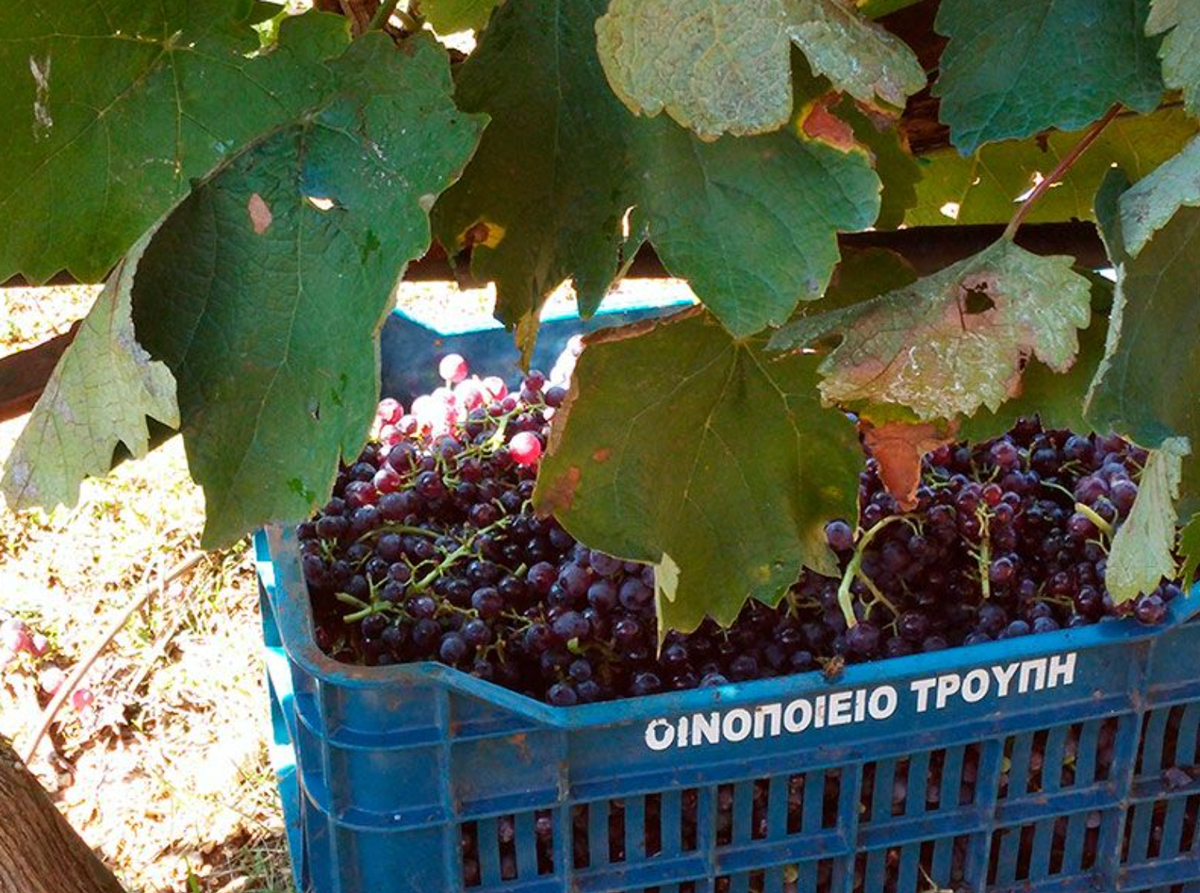
Wine Culture Magazine

A vineyard at Domaine Skouras. Supplied photo
From Dionysus to dinner tables, wine has always been integral to the Greek identity. For millennia, Greece has nurtured a winemaking tradition intrinsically connected to its soul. Yet despite this rich and ancient heritage, Greek wines have remained under the radar, cherished by only those in the know and often overlooked internationally. That is, until recently.
For hundreds of years, wines from Greece’s European neighbours have dominated the global industry. The story of Greece’s underrepresentation in the global market is largely one of disruption. “Greek winemaking goes way back to prehistoric times, but that long tradition got interrupted,” says Eleni Kinti, founder of Meditaste, a BC-based company importing fine Greek wines. “The 400 years of Ottoman occupation broke the continuity. Sure, monasteries helped keep some of it alive, but winemaking wasn’t really thriving.”

A vineyard at Kir-Yianni.
Even after independence, the industry struggled to find its footing. A push for quantity over quality dominated much of the 20th century, with many producers favouring international grape varieties in addition to tourist-driven demand, perpetuating a reputation for generic, bulk wine. But by the early 1990s, the fate of Greek wine began shifting course.
“Things started to change 30 years ago,” says Kinti, “when a new generation of winemakers went abroad to France, Italy, and Germany, coming home with fresh ideas. Plus, the EU started to want quality over quantity. That gave producers the push to focus on native grapes, smaller farms, and more hands-on work.” The result is a flourishing movement focused on authenticity and terroir—one that aligns perfectly with today’s increasingly adventurous and conscientious wine drinkers. “Today’s drinkers want authenticity… something real and unique,” Kinti adds.

The tasting room at Karamolegos.
And real and unique is exactly what Greece has to offer. From volcanic islands to mountainous interiors and approximately 200 indigenous grape varieties, the potential for distinctive expressions is vast. Whites like Assyrtiko from Santorini are turning heads, praised for their sharp minerality and structure. Moschofilero, with its fresh, floral profile, and Vidiano, a Cretan gem with peachy, herbal complexity, are also gaining attention.
For reds, varieties like Xinomavro from Naoussa are often likened to Nebbiolo for its aging potential and earthy elegance, and the velvety Agiorgitiko from Nemea are redefining perceptions. Mavrotragano, once on the brink of extinction, is now producing dark, structured reds that are making waves.
In British Columbia, where Mediterranean culture and cuisine has long had a home, these wines are finding eager audiences. At the forefront of this movement has been John Clerides, an established wine authority and owner of Marquis Wine Cellars. “Other than traditional tourism, Greece has not been great at promoting themselves,” says Clerides. “They know what they have and have tried to keep it to themselves, but the secret is out.” After years of education and promotion, Greek wines from producers like Troupis, Skouras, Karamolegos, and Kir-Yianni are now staples in-store.

Harvested grapes at Troupis.
As Greek wines make their way onto more restaurant lists and shelves, Kinti encourages consumers to explore beyond the expected. “There’s something for everyone because of all the different climates, soils, mountains, and native grape varieties.” Her advice? Look for wines from smaller producers that respect their land and tradition. While varieties like Assyrtiko and Xinomavro have earned their place in the spotlight, lesser-known grapes like Limniona, Liatiko, Mavrotragano, and Santameriana offer equally exciting expressions of terroir.
Clerides echoes this narrative. “While the international varietals are quite good, the true gems are in Greece’s indigenous grapes.” He adds that many of the best bottles available in BC are found in boutique shops or through spec listings. What to look for? “Freshness, no heavy oak, purity, and salinity – specially in whites grown near the sea or on the islands.”
As more consumers around the world discover the merit and food-friendly nature of these wines, Greece’s role on the global wine stage is poised for a true renaissance. “The future is exciting,” Clerides states. “This is one of the undiscovered gems of the wine world.”
Copyright © 2026 - All Rights Reserved Vitis Magazine